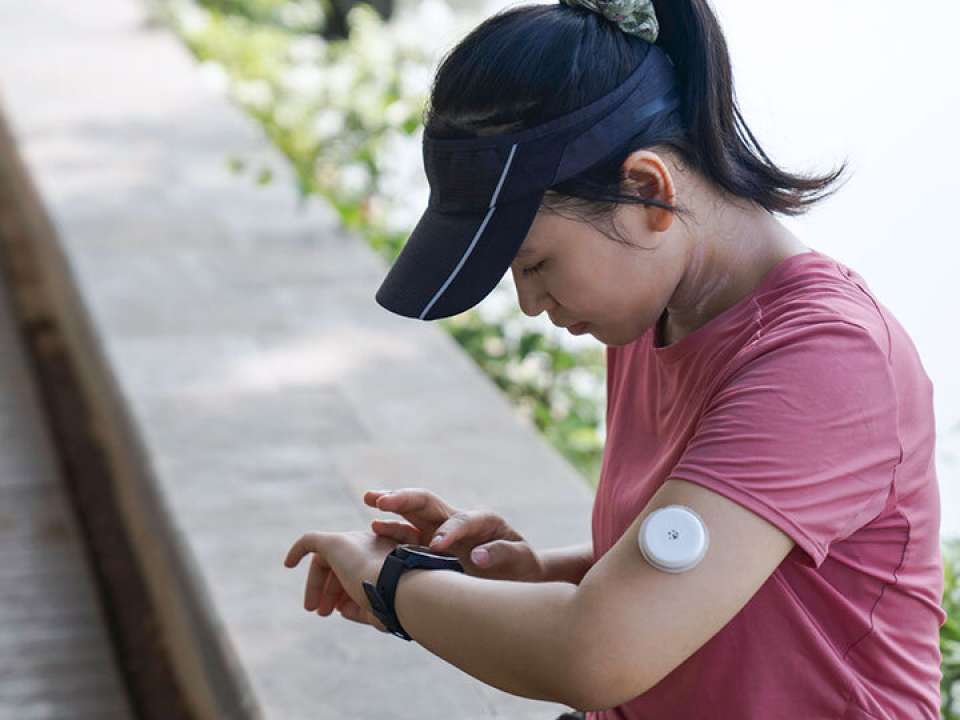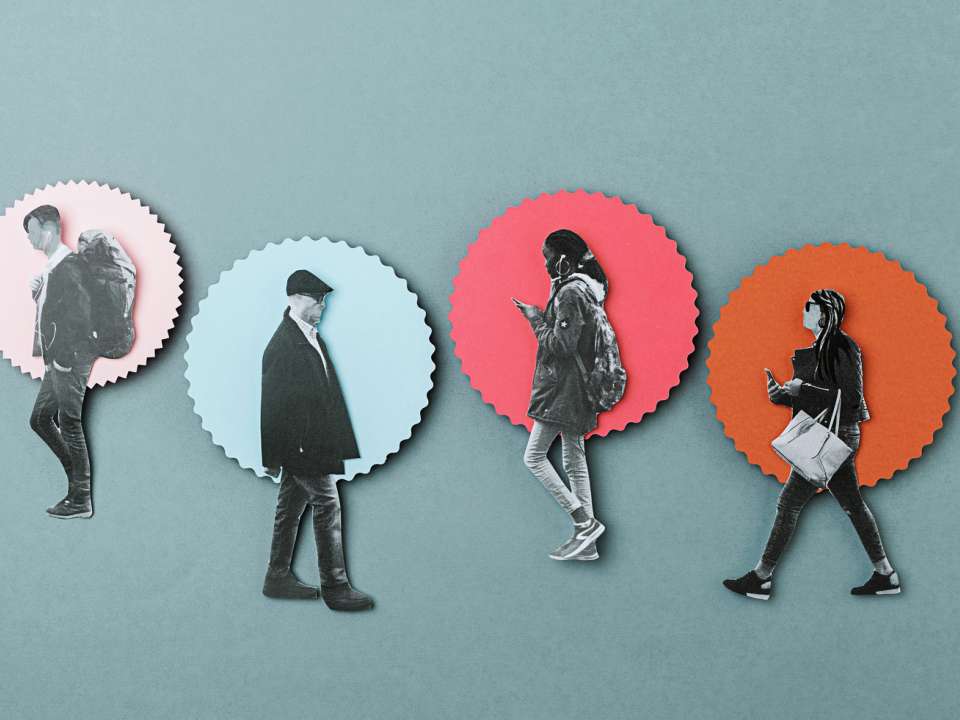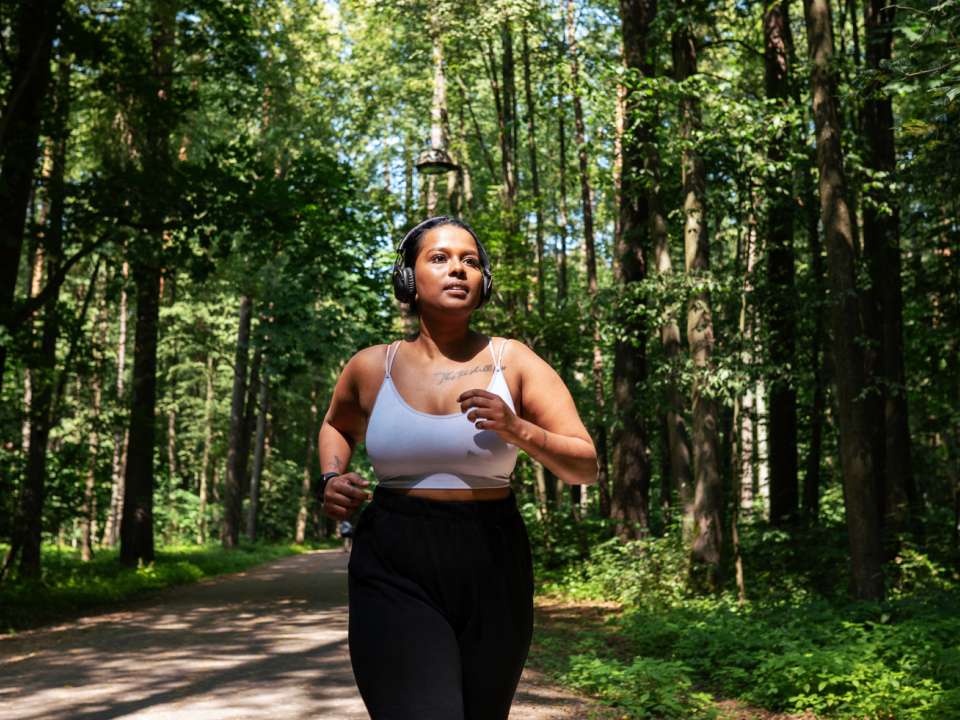
A heavy stomach. Stomach tightness. A rock in your belly.
There are plenty of ways to describe that too-full feeling that can happen after you eat, and none of them are fun.
Luckily, this too shall pass (in this case, literally) — and there are ways to relieve some discomfort in the meantime.
What causes stomach tightness after eating?
Feeling overfull is caused by your eating habits (what, how and how much you eat) as well as how your body responds to what you eat.
“It’s not just about the quantity of food you eat, but also how you digest it,” says Judy Simon, a registered dietitian nutritionist at the Nutrition Clinic at UW Medical Center – Roosevelt.
Certain foods, like those high in fat, take longer to digest, meaning they stick around in your stomach longer and can cause you to feel overly full. Foods high in fiber, like lentils and beans, are more likely to cause bloating and gas, especially if you aren’t used to eating them.
The speed at which you eat also plays a role, Simon says.
When you eat too fast, you swallow more air with each bite. This means the faster you eat, the more likely it is that air bubbles will get trapped in your gastrointestinal tract and cause bloating. Plus, eating quickly can lead to indigestion, and research has shown that the faster you eat, the more likely you are to eat more than your body needs to feel full — both scenarios that can cause stomach tightness.
Along with eating habits, conditions like irritable bowel syndrome (IBS), gastroparesis and gastroesophageal reflux disease (GERD) can cause discomfort after eating. And Simon notes pregnant people may experience stomach tightness after eating as their baby grows and pushes on their intestines and stomach.
How can you prevent stomach tightness?
The best way to deal with stomach tightness is to prevent it from occurring in the first place.
Your brain has cues that tell you to eat when you’re hungry and stop when you’re full — and listening to these cues can help prevent eating past the point of comfort.
“We’ve identified that there are essentially two types of cells critical for driving the reward aspects of food intake. One is ‘go cells’ which facilitate feeding; it’s rewarding to have these cells activated. The other cells do the opposite. When you stimulate those cells, they have dramatic effects and stop feeding even when hungry,” says Dr. Garret Stuber, a UW School of Medicine professor in anesthesiology and pain medicine and pharmacology, who studies how the brain orchestrates feeding.
These cells, along with others in a brain region known as the hypothalamus, are the gas and brakes of your food intake. In other words, your brain provides signals when you’re hungry and full, so tuning into your body can help you eat so that you are satiated but not stuffed. The catch? Just because your body is sending you signals that you’re full doesn’t mean it’s always easy to listen.
It can be harder to pick up on these cues if you are distracted (think watching TV or answering emails while eating), if you are eating too quickly or if you feel pressured to clear your plate regardless of how full you are. Plus, Stuber’s research found that over time, eating a high-fat diet can cause the brake cells to become less active, making it more difficult to tell when you are full.
To get back in touch with your hunger and fullness cues, Simon recommends practicing intuitive eating. The idea is to be mindful, slow down and pay attention to what your body wants so that you can fuel yourself in a way that feels good.
“Identify how hungry you are when you sit down to eat and give yourself permission to enjoy the meal,” Simon says. “You get to decide how much you want, whether you’re halfway through and full or clear your plate and are still hungry and want to get some more.”
How to find relief if you’re too full
Even with the most mindful eating, you still might end up feeling uncomfortably full from time to time.
In those scenarios, here’s how to find some relief.
Take a walk
Getting in some light movement 10 to 15 minutes after you eat helps with digestion and, as a bonus, can prevent post-meal fogginess.
If you have Type 2 or gestational diabetes, a walk will also help prevent a spike in blood sugar and insulin because the glucose from the food you ate will go to your muscles, Simon says.
If a walk feels ambitious, aim for easy movement or some stretching. Something simple like getting up to clean the dishes can make a difference in alleviating bloating.
Pass gas
Yep, you read that right. We give you full permission to do what you gotta do. (Better out than in, ya know?)
“We all have gas. If you’re really gassy or bloated, let it go,” Simon says.
Sometimes stomach pain and bloating is caused by a buildup of gas in your digestive system. If this is the case, passing gas will help relieve the pressure and discomfort.
Wear comfortable clothing
You might not always be able to change into your favorite sweats or that loose fitting tee, but if you are able to wear more comfortable clothing, do so.
Tight, restrictive clothing can put additional pressure on your stomach and digestive tract, so swapping for loose attire can bring a bit of comfort.
Fuel up mindfully
When your stomach is tight, you might feel the urge to skip your next meal. Or, if you have meal plans set, you might feel pressured to push through and eat a large meal right away.
Spoiler alert? Neither option will help you feel better.
“Make a mental note and adjust the next time you are eating. You might wait a bit to give yourself time to digest or switch to eating something lighter for your next meal,” Simon says.
Note what feels good (and what doesn’t)
Ultimately, it helps to identify what is causing your stomach tightness and see what you can do to adjust in the future.
If scarfing down lunch between meetings leaves you feeling bloated, block out time in your day where you can sit down and eat. Or if you eat more than is comfortable because you feel pressured to clean your plate, you can start with smaller portion sizes and go back for more food if you are still hungry.
The idea here is to observe what is causing your body to feel overly full without judging yourself or your actions. Do your best to avoid labeling food as “good” or “bad” and instead try to get curious about what types and amounts of food feel good in your body.
“We’re all individuals. We need to know what feels good to our bodies, and we need to experiment. It’s OK if what feels good to us is different from what feels good to our families or our partners,” Simon says.
Take stock so that you can adjust your eating habits to feel better in the future. For now? Allow your body to digest. Waiting out stomach tightness is no fun, but give it time, and it’ll pass.

 Healthy ideas for your inbox
Healthy ideas for your inbox





